Search
Remove Ads
Advertisement
Summary 
Loading AI-generated summary based on World History Encyclopedia articles ...
Search Results
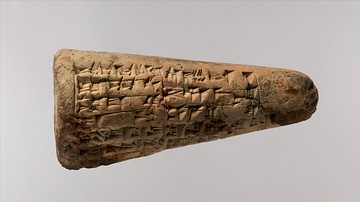
Article
A Praise Poem of Lipit-Estar
A Praise Poem of Lipit-Estar is a Sumerian praise song honoring Lipit-Estar (also known as Lipit-Ishtar, r. c. 1870 to c. 1860 BCE), the fifth king of the First Dynasty of Isin, best known for his legal code written between the time of the...
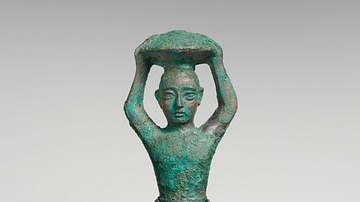
Article
A Praise Poem of Shulgi
A Praise Poem of Shulgi (c. 2020-2000 BCE) is an ancient Sumerian document celebrating the famous run of 200 miles (321.8 km) in one day made by the king Shulgi of Ur (r. 2029-1982 BCE) to distinguish his reign by officiating at the religious...
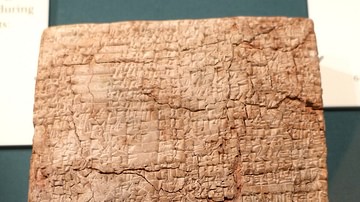
Image
A Praise Poem of Shulgi
A Praise Poem of Shulgi (c. 2020-2000 BCE), celebrating the famous run of 200 miles (321.8 km) in one day made by King Shulgi of Ur (r. 2029-1982 BCE). Exhibit in the Oriental Institute Museum, University of Chicago, Chicago, Illinois, USA...

Book Review
In Praise of Polytheism
Polytheism is superior to monotheism when exchanging religious convictions with others. This is what Maurizio Bettini argues in his brief and clearly written book of short while easily digestible chapters titled In Praise of Polytheism. Published...
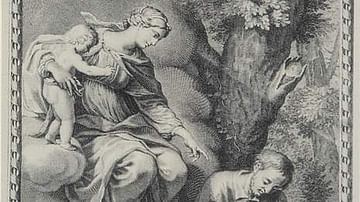
Article
Loyola's Spiritual Exercises
The Spiritual Exercises of Ignatius Loyola (1548) is a manual of disciplines formulated by Ignatius Loyola (l. 1491-1556) to prepare one spiritually for Christian service. They were initially developed between 1522-1524 by Loyola for himself...
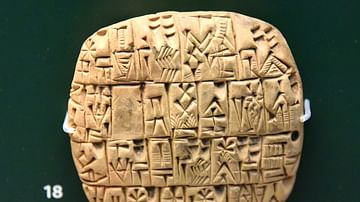
Article
Hymn to Nisaba
The Hymn to Nisaba (c. 3rd millennium BCE) is a poem praising Nisaba, the Sumerian goddess of writing and accounts who also served as scribe of the gods. The poem is officially dedicated to Enki, the god of wisdom (sometimes given as her...
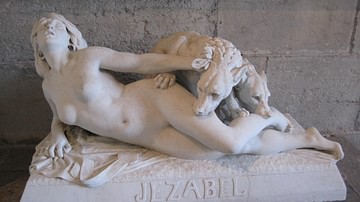
Definition
Jezebel
Jezebel (d. c. 842 BCE) was the Phoenician Princess of Sidon who married Ahab, King of Israel (r. c. 871 - c. 852 BCE) according to the biblical books of I and II Kings, where she is portrayed unfavorably as a conniving harlot who corrupts...
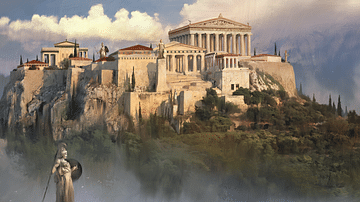
Definition
Proclus
Proclus of Athens (c. 412-485 CE) was a prolific Platonic philosopher whose main aim was the seemingly impossible task of defending traditional Greek polytheism at the time when his contemporary culture was almost completely dominated by...
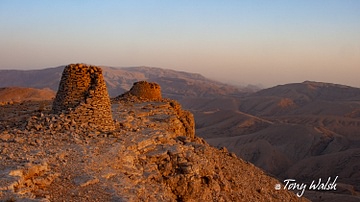
Interview
Oman: The Land of Frankincense - Tony Walsh
While Oman is perhaps the most mysterious corner of the Arabian peninsula to Westerners, the country retains a strong sense of identity, a pride in its ancient past, and unique surprises in the domain of cultural heritage. In this exclusive...

Definition
Mesopotamian Literature
Ancient Mesopotamian literature developed c. 2600 BCE after scribes, who had formerly been record keepers, began composing original works in the region of Sumer. The Sumerians invented writing c. 3500 BCE, refined the script c. 3200 BCE...